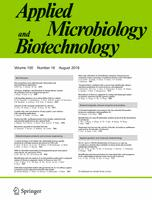
Title: Industrial antifoam agents impair ethanol fermentation and induce stress responses in yeast cells
What Caught Our Attention: When authors decide they want to make their articles freely available after they’ve already been published, how should publishers indicate the change, if at all? Recently, Ross Mounce (@rmounce) thought it was odd a Springer journal issued a formal correction notice when the authors wanted to make their paper freely available, and we can’t say we disagree. As he posted on Twitter:




